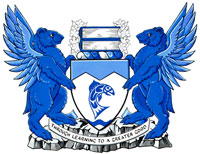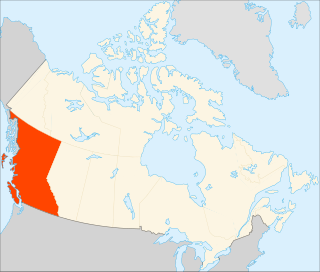Related Research Articles

A psychologist is a professional who practices psychology and studies mental states, perceptual, cognitive, emotional, and social processes and behavior. Their work often involves the experimentation, observation, and interpretation of how individuals relate to each other and to their environments.


The Canadian Institute of Actuaries (CIA) is the national organization of the actuarial profession in Canada. It was incorporated March 18, 1965. The FCIA designation stands for Fellow of the Canadian Institute of Actuaries. As the national organization of the Canadian actuarial profession, the CIA serves the public through the provision by the profession of actuarial services and advice by: representing the Canadian actuarial profession in the formulation of public policy; promoting the advancement of actuarial science; educating and qualifying CIA members; ensuring that actuarial services provided by its members meet accepted professional standards; and assisting actuaries in Canada in the discharge of their professional responsibilities.

Capilano University (CapU) is a teaching-focused public university based in North Vancouver, British Columbia, Canada, located on the slopes of the North Shore Mountains, with programming that also serves the Sea-to-Sky Corridor and the Sunshine Coast. The university is named after Chief Joe Capilano Sa7plek (Sahp-luk) who was the leader of the Squamish people (Sḵwx̱wú7mesh) from 1895 to 1910.

The UBC Sauder School of Business is a faculty at the University of British Columbia. The faculty is located in Vancouver on UBC's Point Grey campus and has a secondary teaching facility at UBC Robson Square downtown. UBC Sauder has been accredited by AACSB since 2003. The current Dean is Darren Dahl, who succeeds Robert Helsley.
The Council on Social Work Education (CSWE) is a nonprofit national association in the United States representing more than 2,500 individual members, as well as graduate and undergraduate programs of professional social work education. Founded in 1952, this partnership of educational and professional institutions, social welfare agencies, and private citizens is recognized by the Council for Higher Education Accreditation as the sole accrediting agency for social work education in the United States.
Engineers Canada is the national organization of the 12 provincial and territorial associations that regulate the practice of engineering in Canada. Engineers Canada serves these associations, which are its sole members, by delivering national programs for standards of engineering education, professional qualifications and professional practice.
Continuing legal education (CLE), also known as mandatory or minimum continuing legal education (MCLE) or, in some jurisdictions outside the United States, as continuing professional development, consists of professional education for attorneys that takes place after their initial admission to the bar. Within the United States, U.S. attorneys in many states and territories must complete certain required CLE in order to maintain their U.S. licenses to practice law. Outside the United States, lawyers in various jurisdictions, such as British Columbia in Canada, must also complete certain required CLE. However, some jurisdictions, such as the District of Columbia and Israel, recommend, but do not require, that attorneys complete CLE.
The National Register of Health Service Psychologists is the largest credentialing organization for psychologists in the United States. Founded in 1974, the National Register was created to identify qualified Health Service Providers. Today, the National Register certifies 11,000 licensed psychologists as health service providers and reviews credentials for doctoral students. The National Register is a 501c3 nonprofit organization based in Washington DC.
The Appraisal Foundation (TAF) is the United States organization responsible for setting standards for the real estate valuation profession. The organization sets the congressionally authorized standards and qualifications for real estate appraisers, and provides voluntary guidance on recognized valuation methods and techniques for all valuation professionals. The aim is to ensure appraisals are impartial, objective and independent, are conducted without bias and are performed in an ethical and competent manner.
The Ontario Real Estate Association (OREA) is a professional association that represents real estate brokers and salespeople who are members of Ontario's real estate boards. It has its headquarters at 15 Kern Road in Toronto.
The New Brunswick Real Estate Association serves and regulates its members through education in professional and ethical standards and promotion of public awareness for the benefit of realtors and the public they serve. It was founded in 1958.
Professional social workers are generally considered those who hold a professional degree in social work. In a number of countries and jurisdictions, registration or licensure of people working as social workers is required and there are mandated qualifications. In other places, the professional association sets academic and experiential requirements for admission to membership.

Higher education in Canada includes provincial, territorial, indigenous and military higher education systems.

Higher education in British Columbia is delivered by 25 publicly funded institutions that are composed of eleven universities, eleven colleges, and three institutes. This is in addition to three private universities, five private colleges, and six theological colleges. There are also an extensive number of private career institutes and colleges. Over 297,000 students were enrolled in post-secondary institutions in British Columbia in the 2019-2020 academic year.
Family resource programs (FRP) are Canadian community-based organizations that intend to support families in a variety of ways through systems such as family resource centers, family places, family centers, and neighborhood houses. They can also be linked to schools, community centers, child care programs, women's centers, and native friendship centers. This includes programs such as Ontario Early Years and military-funded family centers. They are generally grassroots organizations that aim to be responsive to local issues.
Graduate real estate education is the study of real estate development at the graduate school level. It has taken many forms, giving rise to various educational models in different countries.
Professional requirements for architects vary from place to place, but usually consist of three elements: a university degree or advanced education, a period of internship or training in an office, and examination for registration with a jurisdiction.
The Insurance Institute of Canada is a not-for-profit organization which provides nationally standardized professional development programs for the insurance industry in Canada. Founded in 1952 and headquartered in Toronto, the IIC is an umbrella organization of 19 provincial and regional chapters across Canada.

The Association of British Columbia Land Surveyors (ABCLS) is a self-governing, non-profit, non-governmental organization which sets educational requirements, examines for admission, and regulates professional land surveyors within British Columbia, Canada. The ABCLS is responsible for developing bylaws and guidelines for the conduct of its members, establishing and administering entry requirements for the profession, and liaising with governmental bodies and other associations to improve the quality of the profession's service to the public.
References
- ↑ "Report from Council" (PDF). August 2006. Archived from the original (PDF) on 2006-11-15. Retrieved 2007-04-07.
- ↑ "BCREA".